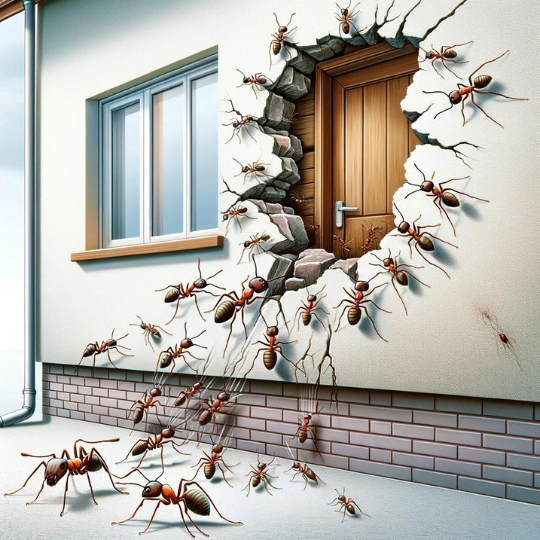
25 Jul Why Do I Have Ants In My Home?
Understanding the Ant Invasion
Ant infestations are a common issue for homeowners in South Florida. The warm and humid climate provides an ideal environment for these pests to thrive. If you’re wondering, “Why do I have ants in my home?” Pest Busterzz is here to shed light on the reasons behind ant invasions and offer effective solutions to keep your home ant-free.
The subtropical climate of South Florida is a paradise not just for people but also for ants. Here are some key factors contributing to ant infestations in the region:
- Climate: The warm temperatures and high humidity create a perfect breeding ground for ants, allowing them to remain active year-round.
- Abundant Food Sources: With the lush vegetation and diverse flora, South Florida offers a rich food supply for ants, from sweet plant nectar to other insects.
- Moisture: The frequent rains and damp conditions provide the necessary water sources ants need to survive.
Common Types of Ants in South Florida Homes
Several ant species call South Florida home, but a few are more likely to invade your living space:
Ghost Ants: These tiny, pale ants are prevalent in South Florida. They’re attracted to sweet substances and often found in kitchens.
Carpenter Ants: Large and destructive, carpenter ants are drawn to moist, decaying wood, posing a threat to your home’s structure.
Fire Ants: Known for their painful stings, fire ants build large mounds outdoors but can venture indoors in search of food and water.
Pharaoh Ants: These small, yellow ants are notorious for their ability to spread quickly throughout homes and buildings.
Prevention and Control Tips
To combat ant infestations, consider these region-specific tips:
Landscape Maintenance: Trim back trees and bushes from your home to reduce access points for ants.
Moisture Control: Ensure proper drainage around your property and fix any leaks to eliminate water sources for ants.
Food Storage: Store food in sealed containers and keep your kitchen clean to avoid attracting ants.
Regular Inspections: Check for signs of ant activity regularly, especially in areas prone to moisture.
While preventive measures can be effective, some ant infestations may require professional assistance. If you’re dealing with a large infestation, seeing signs of carpenter ant damage, or simply can’t seem to get rid of ants, it’s time to call Pest Busterzz. Our team of experts specializes in ant control in South Florida, using safe and effective methods to eliminate ants and prevent future invasions.
Conclusion
Ants in your South Florida home can be more than just a nuisance; they can pose a threat to your property and well-being. Understanding the reasons behind ant invasions and taking proactive steps can help you keep your home ant-free. For persistent or severe infestations, Pest Busterzz is here to provide professional, reliable ant control services tailored to the unique needs of South Florida residents.


No Comments